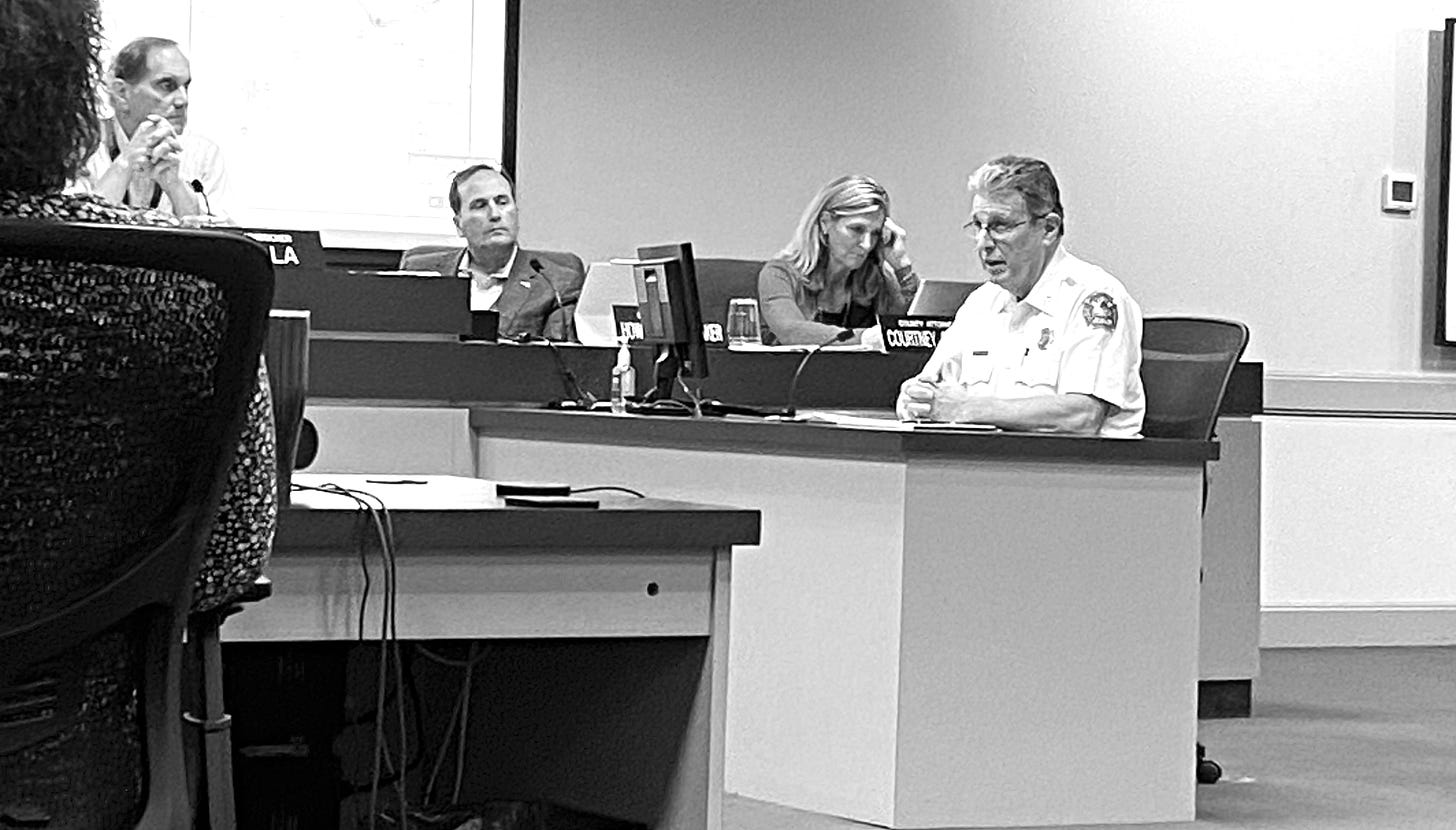Board of county commissioners holds impact fee workshop
Clay County commissioners held a workshop on impact fees, Monday, Nov. 28. During their Oct. 25 meeting, they delayed for 30 days a vote on the implementation of new fees that would add to the cost of new construction and would fund infrastructure improvements. Several representatives of the development and construction industries asked commissioners to delay taking action on the proposed fees. In response, commissioners delayed their vote on the fees and scheduled the Nov. 28 workshop.
An impact fee study completed for the county in October described the maximum allowable impact fees for six classes of future facilities. For a new home between 1,500 and 2,499 square feet, the study said the county could charge a $6,577 fee to fund future growth.
In a revised study written after the document’s author met with Clay County’s development and construction communities, the impact fee for a new home between 1,500 and 2,499 square feet is $4,877, a $1,700 fee reduction from the original report.
During the workshop, several county agencies presented their outlook for the next 20 years.
Fire Chief Lorin Mock said that between 2015 and 2022, calls for service to the fire department increased by 40%.

Mock said he anticipates purchasing 10 additional ambulances to meet growth projections. He added that the overwhelming majority of the 27,000 annual calls projected in the future are medical calls. He also said the county will have to build eight additional stations over the next 20 years.
Assistant County Manager Troy Nagle said the county will need $104 million to fund future law enforcement needs. Impact fees would fund $25.7 million of those costs.
Nagle also said the total cost of the county’s regional recreation park near State Roads 21 and 16 could be as high as $33 million.
The sheriff’s office’s chief financial officer said the agency’s administrators are now spread out over 18 buildings. The office’s CFO said they need to be under one roof. She also said the office now lags the state average in deputies per capita.
Home builder Michael Bourre said the impact fee study does not identify current standards for service levels. He added that the county has no separate studies on county deficiencies and that the impact fee study is deficient.
George Egan of the Reinhold Corporation said his organization supports the concept of impact fees, but that the impact fee study needs more detail and depth.
Erick Saks, representing Operation Lifeline which provides affordable housing for veterans, asked commissioners to consider discounts on impact fees for affordable housing. He said his organization can’t work in St. John’s County because no such discounts exist.
T.R. Hainline Jr. of the Roger’s Towers law firm, representing the Northeast Florida Home Builders, said the impact fee study revisions are positive. He added that missing from the study are existing county deficiencies. “This is important because you cannot use impact fees to fund existing deficiencies,” he said.
The author of the impact fee study: Carlos Villarreal of Willdan Financial Services, defended his report. He said the document is in compliance with Florida statutes and case law on impact fees.
Commissioner Kristen Burke said officials are criticized for not getting ahead on infrastructure. “If we are 63rd out of 67 counties in public safety funding, we are not doing our jobs,” she said.
Commissioner Mike Cella, disagreeing with a development industry representative, said impact fees do not tie the hands of future commissioners. “It provides a plan for future growth,” he said. “People don’t want to sit in congested roadways, and they want parks where their children can play.”
Cella also said Clay County is ranked near the bottom in the state in terms of per capita county government spending. “The taxpayers are getting value for their money,” he said. “Businesses coming into the county want to see that we have a plan for the future.”
Commissioner Betsy Condon said a picture is worth a thousand words. She added that Mock’s map of current fire stations showing the lack of coverage and future growth speaks volumes.
The board of county commissioners is scheduled to take up impact fees during its Dec. 13 meeting.
